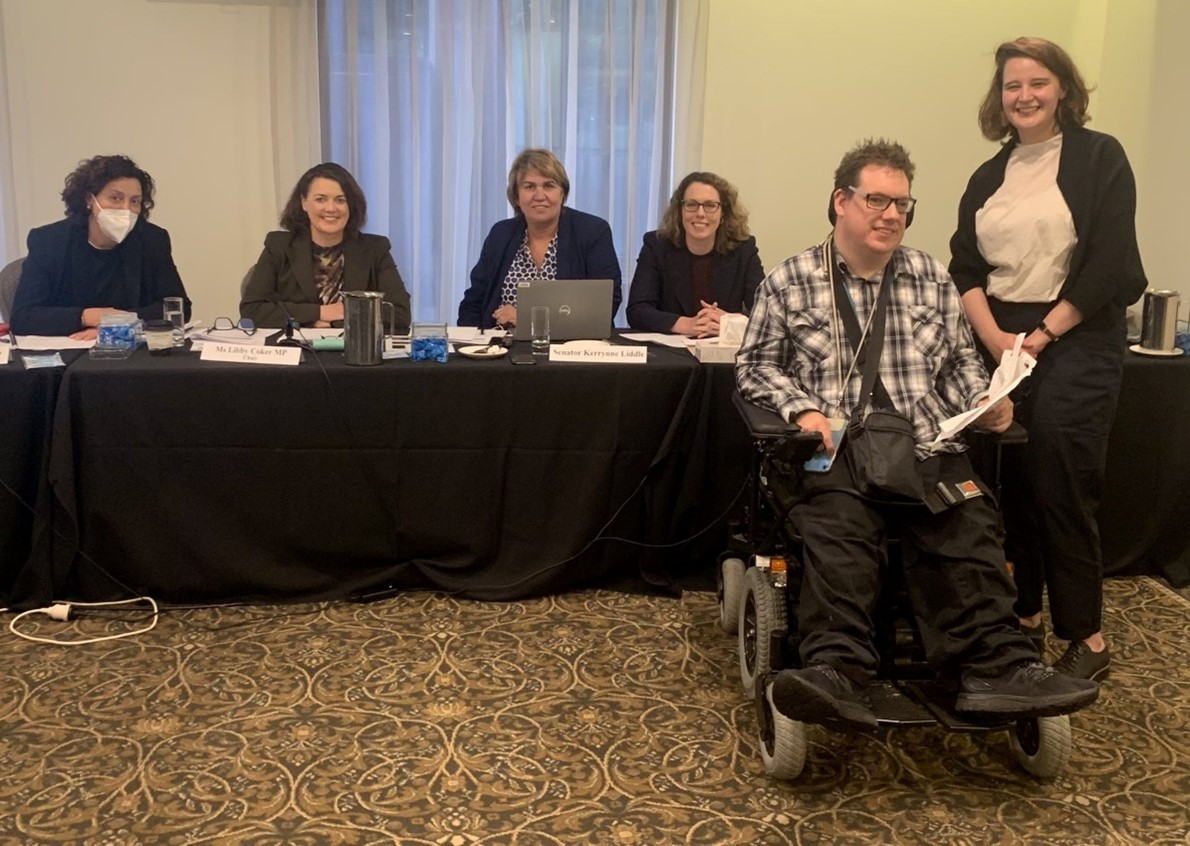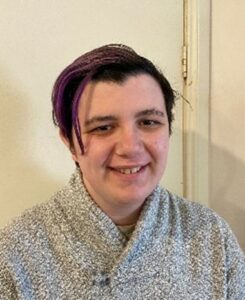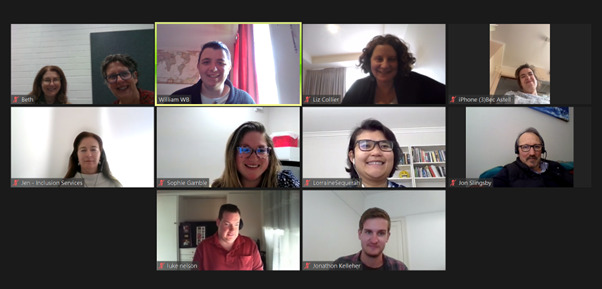The experiences of people with disability with guardianship and substituted and supported decision making will be the focus of a Disability Royal Commission public hearing beginning Monday 21 November.
Inclusion Australia welcomes this hearing as an opportunity to talk about the rights of people with a disability to participate in decision-making to the greatest extent possible, and to interrogate the ways that the current systems undermine this right.
Support for decision making is a priority
The UN Convention on the Rights of Persons with Disabilities, which Australia has ratified, affirms the right of all people with disability to equal recognition before the law and says that every person should have their legal capacity acknowledged on an equal basis with others. It recognises that access to appropriate supports is an important part of this.[1]
This is far from where we currently are.
Catherine McAlpine, CEO Inclusion Australia, said “for many people with an intellectual or cognitive disability in Australia, this is not the reality. Many people are routinely denied the right to make decisions, and so have decisions made for them. Our systems entrench this. As well as increasing the risk of abuse and exploitation, this normalises the idea of substitute decision making, rather than it being a measure of last resort.”
There has been significant work exploring supported decision making and legal capacity already. Key recommendations from the Australian Law Reform Commission’s 2014 report, Equality, Capacity and Disability in Commonwealth Laws, [2] have never been implemented. This includes reforming relevant Commonwealth, state, and territory laws to be consistent with the National Decision-Making Principles [3] and establishing a Commonwealth decision making model. The report recognises that equitable and supported decision making is also fundamentally relevant to other legislation, systems, and programs, including health and social security.
Ms McAlpine said, “The Royal Commission now has an opportunity to build on the ALRC’s important work and ensure implementation of reforms that would make a real difference to the lives of people with an intellectual disability.”
Inclusion Australia and our members have long advocated for better support for people with an intellectual disability to make their own decisions. [4] Our 2021 submission to the National Disability Insurance Agency [5] reports on feedback from people with an intellectual disability and highlights the barriers many people face. This includes making sure the NDIS includes the time and costs involved in building people’s capacity to make decisions.
Ms McAlpine stated, “We call on the Government and NDIA to invest in targeted programs which increase the understanding and skills of decision makers and their supporters. Such training should be co-designed and led by people with disability.”
Inclusion Australia’s Our Voice committee provides advice to the organisation’s board and comprises people with an intellectual disability from across Australia. Our Voice members say, “people with disabilities have the right to make decisions big and small about their lives. This means everyone with a disability and every decision. If we need help, we need good help from people who know us well.”
Pressures for substitute decision making are increasing
Inclusion Australia and our members have heard many stories of pressures on people with an intellectual disability and their families to apply substitute decision making or guardianship. Administrative needs are commonly quoted, and there is strong pressure from some service providers.
Ms McAlpine said, “We heard from one family member last week that they were unable to even book an allied health appointment for their son without showing they had power of attorney. They couldn’t get past the receptionist.”
“However, there is little publicly available data on guardianship, substitute decision making, and there is no nationally consistent approach to collecting and monitoring data on guardianship and intellectual disability. This includes the reasons why guardianship is applied,” said Ms McAlpine.
“We call on the Disability Royal Commission to make recommendations around data collection that will increase our understanding.”
Understanding of supported decision making rights and practice must be embedded across our disability service system, and others. This includes access to capacity building for individuals and decision supporters, like family and friends.
Ms McAlpine said, “It is critical to ensure substitute decision making rulings are specific and only applied where needed, and that they are time limited. It is also essential that they are built on the foundation of will, preferences, and rights.
Where an individual requires significant support for decision making, guardianship may be part of the response, but this must centre the individual’s rights and wherever possible be led by their will and preferences.”
“Inclusion Australia strongly believes that guardianship should be a genuine response of last resort and encourages the Disability Royal Commission to think deeply about what is best for people who need urgent action to escape violence or avoid unsafe and harmful environments,” said Ms McAlpine.
“Even with additional investment in supported decision making, it is likely there will still be a role for guardianship for some time – until there are better alternatives for people to escape from violence, abuse, and the control of others.”
People with disability need clear options now to be able to leave situations of violence, abuse, neglect, and exploitation – even when they do not choose to.
In the interim, urgent investment is needed to strengthen human rights approaches within the current guardianship model.
One example is the current lack of resources and support for people appointed as Guardians. Once appointed there is little guidance on good practice or responsibilities. There is an urgent need for such training and information which draws on the concepts of ‘will, preferences and rights’ articulated in the UN CRPD. This training must draw from the experiences of, and be co-designed and co-delivered with, people with disabilities.
We also need to recognise the different impacts, experiences, and pressures on First Peoples and people from culturally and linguistically diverse backgrounds. Individualist decision making approaches are not always appropriate for community cultures, and more work is required to design systems and ensure practice is culturally safe, appropriate, and equitable.
We applaud the Disability Royal Commission for dedicating this public hearing to decision making and guardianship. It is vital that people with disabilities have this opportunity to publicly share their lived experience of the current models. We hope that the Commissioners will recognise the urgent need to address the current approaches to decision making in their recommendations.
Public hearing 30: Guardianship, substituted and supported decision making will run from 21- 25 November at the Novotel Sydney Olympic Park, NSW
For more details visit: https://disability.royalcommission.gov.au/rounds/public-hearing-30-guardianship-substituted-and-supported-decision-making
__________
[1] See Article 12 – Equal recognition before the law, https://www.un.org/development/desa/disabilities/convention-on-the-rights-of-persons-with-disabilities/article-12-equal-recognition-before-the-law.html
[2] ALRC Report 124, https://www.alrc.gov.au/publication/equality-capacity-and-disability-in-commonwealth-laws-alrc-report-124/
[3] Principle 1: The equal right to make decisions; Principle 2: Support; Principle 3: Will, preferences and rights; Principle 4: Safeguards.
[4] See recent edition of our newsletter, Including Everyone.
[5] https://www.inclusionaustralia.org.au/submission/submission-to-the-ndia-on-support-for-decision-making/
Further Reading






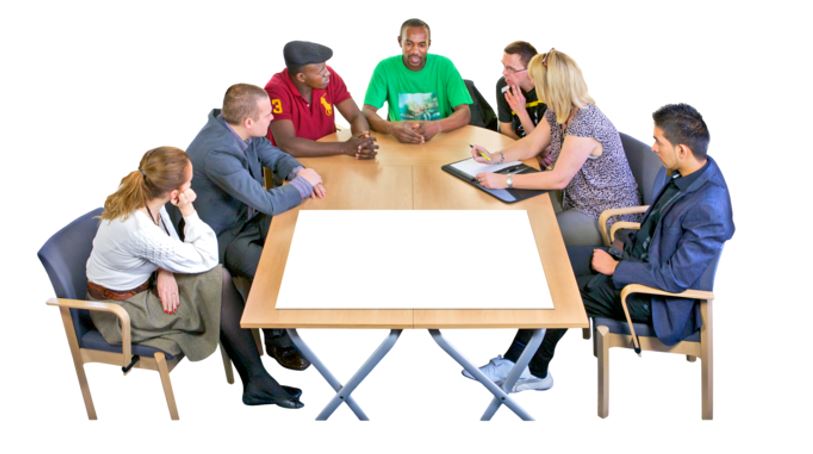 The disability community has been very clear for many years, “nothing about us without us.”
The disability community has been very clear for many years, “nothing about us without us.”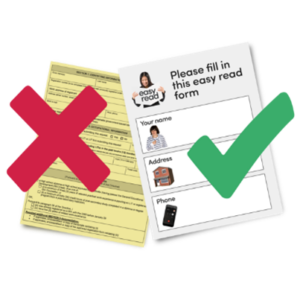






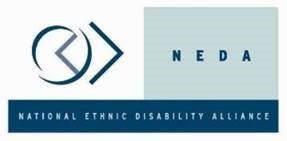
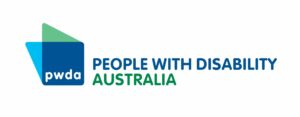
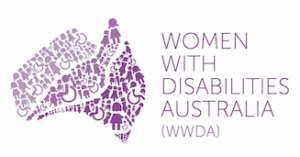
 We are writing a report to the Disability Royal Commission and the Australian Government about employment for people with an intellectual disability.
We are writing a report to the Disability Royal Commission and the Australian Government about employment for people with an intellectual disability.

